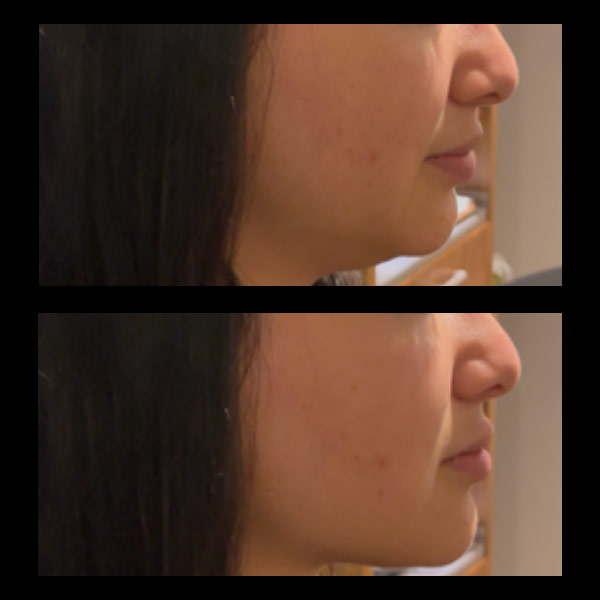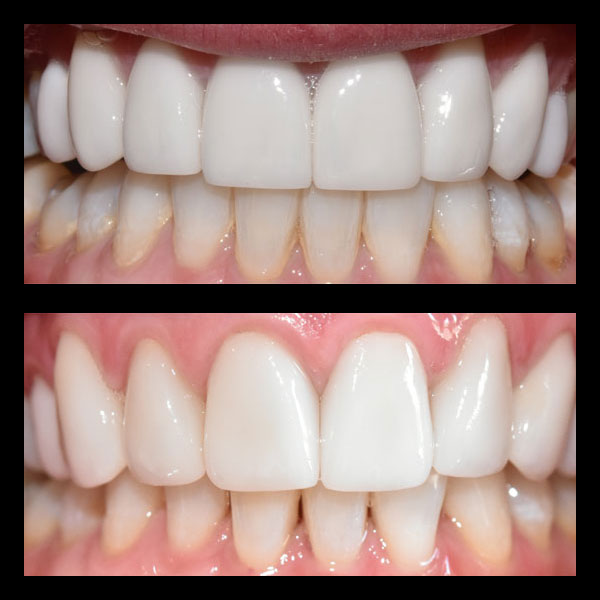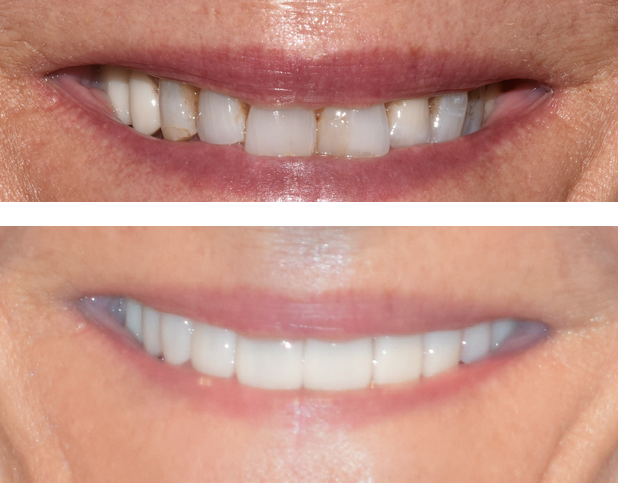Beyond the Smile: Achieving True Harmony in Your Bite
Do you experience persistent headaches, neck tension, or a clicking jaw? While you might not connect these issues to your dental health, they are often signs of an underlying imbalance between your teeth, muscles, and jaw joints. Traditional dentistry excels at treating individual teeth, but physiologic dentistry takes a broader view. It explores the intricate relationship of the entire system that controls your jaw. At Incredible Smiles, we use advanced neuromuscular diagnostics to understand this system, pinpointing the root cause of discomfort to provide lasting relief and create a foundation for optimal oral health.
This approach goes beyond just looking at your teeth. It’s about creating harmony. When your bite is misaligned, your muscles work overtime to compensate, leading to a cascade of painful symptoms. Neuromuscular diagnostics allow us to find your jaw’s ideal resting position, paving the way for treatments that not only perfect your smile but also enhance your overall comfort and well-being.
What Are Neuromuscular Diagnostics?
Neuromuscular diagnostics are a group of sophisticated, non-invasive tests used to evaluate the complex system that controls your jaw movement. Unlike a standard dental exam that focuses primarily on detecting cavities or gum disease, these tools measure the function and health of your jaw muscles and nerves. The goal is to identify the precise cause of misalignment—what dentists call “malocclusion”—and determine the most comfortable, relaxed position for your jaw.
At Incredible Smiles, we utilize state-of-the-art technology to gather this crucial information:
- → 3D Cone-Beam Imaging (CBCT): This powerful imaging provides a detailed, three-dimensional view of your teeth, jawbone, joints (TMJ), and surrounding structures. It helps us visualize the anatomy and identify any structural issues that contribute to your symptoms.
- → Electromyography (EMG): EMG sensors are placed on the skin over your chewing muscles to measure their electrical activity. This tells us if your muscles are overworked, in spasm, or functioning harmoniously.
- → TENS (Transcutaneous Electrical Neural Stimulation): A gentle, low-frequency TENS unit is used to deliver mild electrical pulses to your jaw muscles. This helps them relax from their habitual, often strained, position and allows us to find their true, ideal resting state. It’s a key step in discovering your optimal bite optimization.
Did You Know?
A misaligned jaw can be a hidden contributor to a variety of seemingly unrelated health issues. Chronic tension headaches, dizziness, ringing in the ears (tinnitus), and even sleep-disordered breathing like sleep apnea can often be traced back to an imbalanced bite.
Furthermore, teeth grinding (bruxism) doesn’t just wear down your teeth; the constant muscle strain can lead to significant facial and neck pain. Finding the ideal jaw alignment can alleviate these forces, protecting your smile and reducing discomfort.
Signs You May Benefit from a Neuromuscular Evaluation
Disorders of the jaw joint and muscles, often called Temporomandibular Disorders (TMD), can manifest in many ways. If you experience any of the following symptoms, a neuromuscular evaluation could provide the answers and relief you’ve been seeking:
Addressing these issues with TMJ treatment based on neuromuscular diagnostics can lead to a healthier life, preserving your dental work and preventing future problems. It’s the foundation for a successful full mouth reconstruction and helps maintain the beauty of cosmetic enhancements.
Your Center for Neuromuscular Dentistry in Boulder, Colorado
At Incredible Smiles in Boulder, we are proud to be at the forefront of neuromuscular and physiologic dentistry. Led by the expertise of Dr. Priya Uppal and Dr. Lori Kemmet, our practice combines scientific precision with artistic vision. We believe that a truly incredible smile is one that is not only beautiful but also functions in perfect harmony.
Our commitment to patient well-being is reflected in our spa-like office, designed to ensure your care and comfort from the moment you arrive. We understand that residents of Boulder value holistic, health-conscious solutions, and our approach to dentistry aligns with that philosophy. By integrating advanced neuromuscular diagnostics into our practice, we provide our patients with predictable, long-lasting results for a wide range of dental services—from cosmetic makeovers to complex reconstructions.
Ready to Find Lasting Comfort and Alignment?
If you’re tired of living with unexplained pain and want a solution that addresses the cause, not just the symptoms, it’s time to explore neuromuscular dentistry. Contact Incredible Smiles in Boulder to schedule your complimentary consultation.
Frequently Asked Questions
What is the difference between a regular dentist and a neuromuscular dentist?
A regular dentist focuses primarily on the health of your teeth and gums—diagnosing cavities, performing cleanings, and placing crowns. A neuromuscular dentist takes a wider view, studying the relationship between your teeth, jaw joints, and the muscles that control them to find an optimal bite relationship for lasting comfort and function.
Is neuromuscular diagnostic testing painful?
No, the diagnostic tests are completely non-invasive and painless. The TENS unit provides a gentle pulsing sensation that most patients find relaxing, and the other tests simply involve placing sensors on the skin to record muscle and joint activity.
Can neuromuscular dentistry help with my sleep apnea?
Yes, in many cases. The position of your jaw directly impacts the openness of your airway. For patients with obstructive sleep apnea, a custom oral appliance designed using neuromuscular principles can hold the jaw in a forward position, keeping the airway open during sleep. To learn more, visit our page on sleep apnea treatment options.
Will my insurance cover neuromuscular treatments?
Coverage can vary depending on your provider and plan. Some treatments may be partially covered by medical or dental insurance, especially if they are deemed medically necessary for conditions like TMD or sleep apnea. Our team can help you understand your benefits. For more information, please see our dental insurance FAQ page.
Glossary of Terms
Bruxism
The medical term for the involuntary habit of grinding or clenching the teeth, typically during sleep.
Malocclusion
The misalignment of the upper and lower teeth when the jaw is closed, also known as a “bad bite.”
Neuromuscular Dentistry
A field of dentistry that focuses on correcting jaw misalignment by addressing the interplay of the teeth, muscles, and temporomandibular joints.
Temporomandibular Joint (TMJ)
The hinge joint on each side of your head that connects the jawbone to the skull, allowing for chewing, speaking, and yawning.
TENS (Transcutaneous Electrical Neural Stimulation)
A therapeutic technique that uses low-voltage electrical currents to relax muscles, often used in neuromuscular dentistry to help find the jaw’s ideal resting position.








